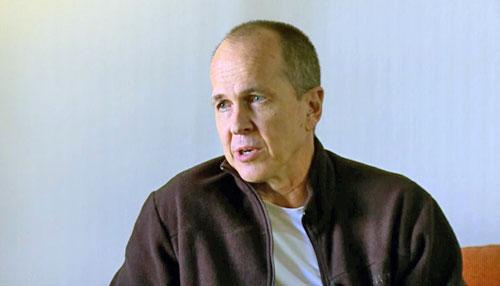You are here
American released by Syrian militants thanks Qatar, US officials
By Reuters - Aug 27,2014 - Last updated at Aug 27,2014
CAMBRIDGE, Mass — A US writer freed this week after being held captive for two years by Syrian insurgents on Wednesday thanked those who had worked for his release and said he was emotionally overwhelmed by his welcome home.
Peter Theo Curtis, who was held by Nusra Front, Al Qaeda's official wing in Syria, said he had no idea while he was imprisoned that there had been hundreds of people around the world pushing for his release.
In a written statement released overnight, Curtis also thanked the government of Qatar and US officials for working to free him.
"I am just overwhelmed with emotion," Curtis, 45, told reporters outside his mother's home Wednesday morning.
Curtis, who was freed on Sunday, said numerous strangers had approached him to welcome him back to the United States.
"I suddenly remember how good the American people are and what kindness they have in their hearts. And to all those people I say a huge 'thank you' from my heart, from the bottom of my heart," he said.
He declined to answer questions. "I will respond, but I can't do it now," said Curtis, who along with his mother Nancy Curtis raised a US flag at the home before he spoke to reporters.
Curtis arrived in the United States late on Tuesday after a flight from Tel Aviv, meeting his mother at Boston's Logan Airport.
His release comes against the backdrop of other efforts to free other US hostages in Syria as the United States considers possible options, including air strikes, to target the Islamic State organisation.
Earlier on Tuesday, his parents said in various television interviews that they were relieved. Their son's return came just days after rivals of Al Nusra Front, the militant group Islamic State, last week said it killed journalist James Foley and threatened another still being held hostage, Steven Sotloff.
Curtis' ex-girlfriend, Jennifer Steil, said he spoke Arabic fluently and understood the Koran, rare attributes among Westerners who travelled to the region.
"He had a passionate interest in trying to understand what's going on in the Middle East and why people were turning to violence," said Steil, an author and journalist.
Related Articles
Four French journalists taken hostage in Syria last year were freed on Saturday after a 10-month ordeal in the world's most dangerous country for the media.
Kidnappers in Syria have freed a US journalist missing since 2012, US Secretary of State John Kerry said on Sunday, following what Qatari-owned Al Jazeera said were efforts by the Gulf Arab state to win his release.
Australian journalist Peter Greste on Monday urged Egypt to free his jailed colleagues at Al-Jazeera, describing his "angst" at having to leave them behind after being released.
















